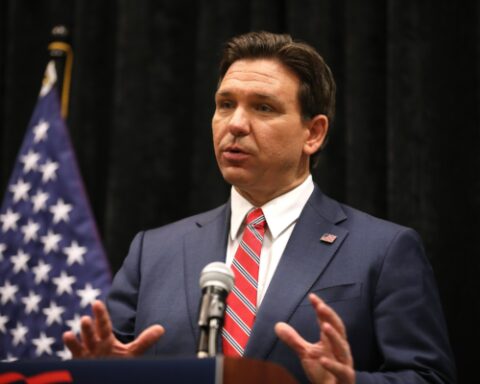Governor Ron DeSantis has now reportedly signed a bill that imposes stricter requirements for citizen-led constitutional amendments in Florida.
The legislation, passed by the Florida Legislature on May 2, aims to enhance oversight of the ballot initiative process, which has been used for significant changes like raising the minimum wage and legalizing medical marijuana.
Supporters argue that the new rules will help combat fraud, particularly following a report from DeSantis’ Office of Election Crimes and Security that found issues with an abortion-rights initiative in 2024.
Critics, however, claim that these changes will suppress citizen participation in policy-making.
Key provisions of the bill include requiring groups sponsoring ballot initiatives to post a $1 million bond once they collect 25% of the necessary signatures.
Additionally, the timeframe for submitting signed petitions has been reduced from 30 days to just 10 days, with fines for late submissions increasing significantly.
A sponsor could face fines up to $50,000 if a signature collector has a felony conviction.
The legislation also mandates that all petition circulators must be Florida residents and places strict penalties on allowing non-citizens or convicted felons to handle petitions.
Critics, including Senator Carlos Guillermo Smith, argue that these measures represent an overreach of government and could effectively eliminate the ability of citizens to enact change.
As the bill moves forward, Democrats warn that it undermines the initiative process that has been in place since 1968, which has historically allowed citizens to address critical issues when the legislature fails to act.
Overall, the new regulations reflect a significant shift in how Florida approaches citizen-driven amendments.
[READ MORE: Kamala Harris Gives First Speech Since Leaving Office]








